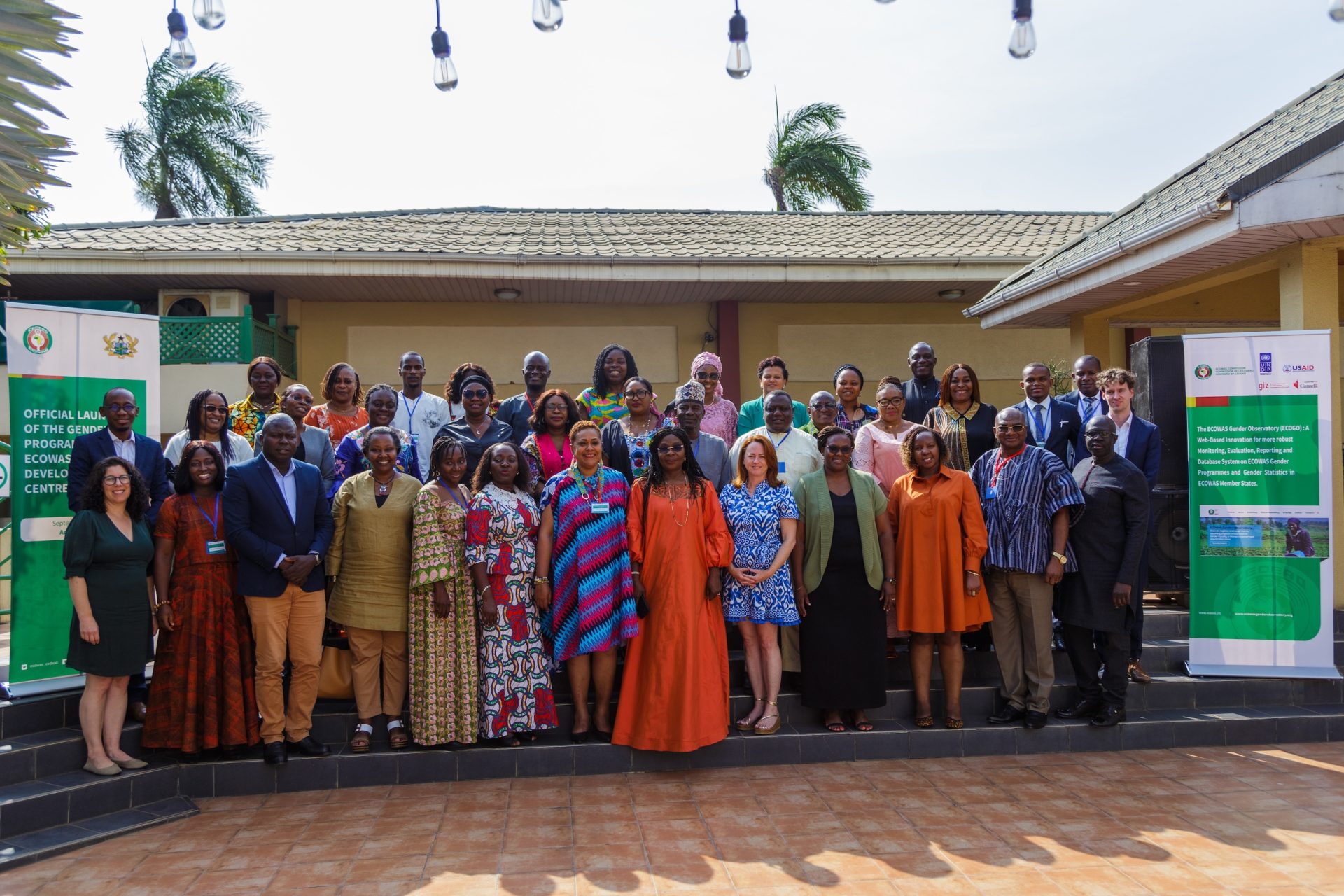The ECOWAS Center for Gender Development (CCDG) launched the ECOWAS Gender Observatory (ECOGO) and CCDG programs in Ghana on September 6, 2024, in Accra, Ghana, with support from USAID’s Strengthening Regional Peace and Stability Program (SRPS) in West Africa and UNDP’s Regional Service Center for Africa.
The ECOWAS Gender Observatory is a regional digital platform for monitoring, evaluating and reporting on ECOWAS gender programs, projects and activities in member states, as well as a statistical database on the state of gender equality and women’s empowerment in the ECOWAS region.
As part of the launch of EGDC’s gender programs, a check for US$245,000 was presented to the Republic of Ghana to boost implementation of the CCDG’s obstetric fistula program in the country. In 2024, ECOWAS provided financial support to 8 member states to help eradicate obstetric fistula in the ECOWAS region. The funds are intended to support the implementation of the four (4) key components of the Fistula program, namely surgical repair of women and girls suffering from obstetric fistula, socio-economic reintegration of fistula survivors into their communities, awareness campaigns on the causes and prevention of obstetric fistula, and the rehabilitation of national fistula referral centers.
In her speech, Professor Fatou Sow Sarr, Commissioner for Human Development and Social Affairs at the ECOWAS Commission, stressed that “the ECOWAS Gender Observatory represents a crucial tool in our quest for gender equality and women’s empowerment”. She added that it is our collective responsibility to ensure that the data collected and studies carried out are not forgotten, but rather translated into tangible action and positive change on the ground.
As part of the launch of EGDC’s gender programs, a check for $245,000 was presented to the Republic of Ghana to boost implementation of the CCDG’s obstetric fistula program in the country. In 2024, ECOWAS provided financial support to 8 member states to help eradicate obstetric fistula in the ECOWAS region. The funds are intended to support the implementation of the four (4) key components of the Fistula program, namely surgical repair of women and girls suffering from obstetric fistula, socio-economic reintegration of fistula survivors into their communities, awareness campaigns on the causes and prevention of obstetric fistula, and the rehabilitation of national fistula referral centers.
In her speech, Professor Fatou Sow Sarr, Commissioner for Human Development and Social Affairs at the ECOWAS Commission, stressed that “the ECOWAS Gender Observatory represents a crucial tool in our quest for gender equality and women’s empowerment”. She added that it is our collective responsibility to ensure that the data collected and studies carried out are not forgotten, but rather translated into tangible action and positive change on the ground.
In her opening address, the Honorable Dakoa Newman, Minister of Gender, Children and Social Protection of the Republic of Ghana, who was represented by Mrs. Faustina Akua Frempomaa Acheampong, Director of the Gender Department, commended the management of the ECOWAS Gender Development Centre for its ongoing commitment to appreciating the importance of women and girls in various areas of the economy, and taking concrete steps to complement member states’ efforts towards this important goal.
As a regional web-based monitoring, evaluation, reporting and database system, ECOGO will cover all ECOWAS member states and include a module for automatic data migration to the African Union Gender Observatory, under the direct supervision of the ECOWAS Commission.

